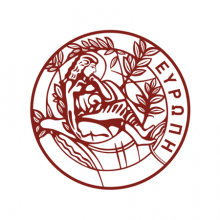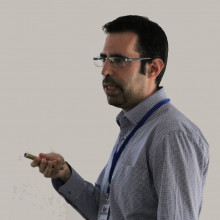SpArch «Φασματοχημική Ανάλυση Αρχαιολογικών Βιο-οργανικών Καταλοίπων»
HFRI-FM17-ΤΔΕ-3542
«1Η ΠΡΟΚΗΡΥΞΗ ΕΡΕΥΝΗΤΙΚΩΝ ΕΡΓΩΝ ΕΛ.ΙΔ.Ε.Κ. ΓΙΑ ΤΗΝ ΕΝΙΣΧΥΣΗ ΤΩΝ ΜΕΛΩΝ ΔΕΠ ΚΑΙ ΕΡΕΥΝΗΤΩΝ/ΤΡΙΩΝ ΚΑΙ ΤΗΝ ΠΡΟΜΗΘΕΙΑ ΕΡΕΥΝΗΤΙΚΟΥ ΕΞΟΠΛΙΣΜΟΥ ΜΕΓΑΛΗΣ ΑΞΙΑΣ»
The main objective of the proposed research (SpArch) is the development of a viable and efficient analytical methodology based on modern spectroscopic techniques that will enable molecular characterization and analysis of bioorganic residues on/in archaeological objects with the purpose to aid archaeological scientific research.
More specifically, our research will focus on integrating a versatile methodology that will enable rapid and efficient screening and characterization of residue materials as they are found in the context of archaeological investigations, based on the combined use of:
a) 2D-fluorescence spectroscopy (excitation-emission) coupled to chemometrics tools, for the classification of various types of organic and bio-organic archaeological residues;
b) Raman microscopy, exploiting, in particular, the surface enhancement effect offered by special metallic nanostructured substrates (SERS: surface-enhanced Raman spectroscopy), for the highly sensitive analysis of organic and bio-organic archaeological residues and identification of biomarkers;
c) novel NMR (nuclear magnetic resonance spectroscopy) methodologies, including 1-D and 2-D schemes, for the classification of various types of organic and bio-organic archaeological residues and identification of biomarkers in complex organic residues.
This research is expected to bridge the gap between, on the one hand, the empirical macroscopic characterization of residues, based primarily on archaeological context and visual criteria, and on the other hand, state-of-the-art methods, relying on powerful, yet time- and effort-demanding, chromatographic and mass spectrometric techniques. The proposed methodology, relying on spectrochemical tools, shall be able to handle large numbers of samples in relatively short times and enable researchers to assess the presence of certain classes of materials, e.g. oils, waxes, resins, proteins, sugars or dyes, and possibly identify distinct molecular biomarkers, thus permitting informed decisions to be made concerning the type of residue materials encountered and the selection of a subsequent high-end method for further detailed analysis.

Funding






